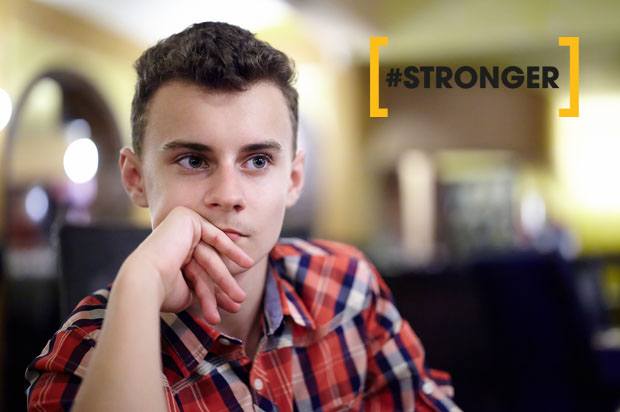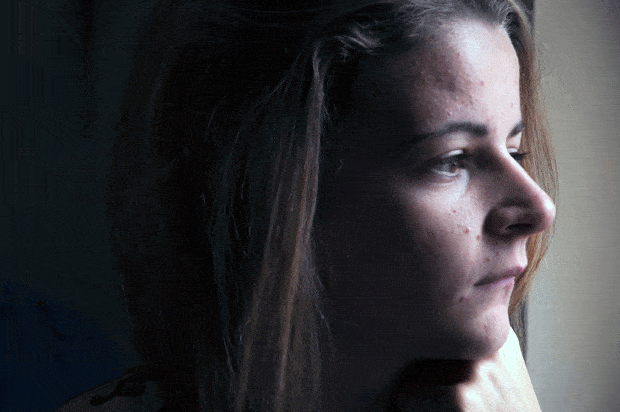Is it ok to have a mental health relapse?
Beginning recovery for a mental illness is a brilliant, brave step. But the fear of relapsing can be ever-present. Does that mean you've failed? Will you have to start again? We spoke to mental health charity SANE to get the lowdown.

It can be frustrating to have a setback, but it's normal
Once you’ve started seeking support for a mental health problem, you’re fine, right? You’re on the up. You’ve taken that step and you’ll just keep taking them. You’ll get better and then your mental health will be all sparkly and shiny, yes? Yes? Hello?
Well… no. Not necessarily. Relapses can and do happen. In fact, they’re quite common and totally ok. We’ll say it again *grabs megaphone*: RELAPSES ARE TOTALLY OK!
What even counts as a relapse? One bad thought or complete rock bottom?
“There are a number of signs that might indicate a person with a mental health condition is relapsing,” a spokesperson at SANE, the mental health charity, says. “These signs can emerge slowly over time or appear more rapidly.”
Ok, so this may seem unhelpful, but in truth it emphasises the fact that every mental health problem in each person can be different. It’s best to be as aware as possible of your triggers and behaviour changes. SANE says that these can be subtle, and may include:
- Irregular sleeping patterns
- Social withdrawal
- Tense or anxious feelings
- Paranoia
- Risky behaviour
- Any past behaviours related to your ill health
Is it normal to have a relapse? Doesn’t it mean I’ve failed and have to start again?
No. Nope. Nooooope. Relapses are not equated to failure, y’hear? They’re a completely normal and common part of the recovery process.
SANE says: “During periods when a person is well they may feel they no longer need [their] medication.” Using alcohol or drugs may also mix unpleasantly with your medication, or just have a negative effect on your mental health and trigger a relapse. This is why it’s so important that you only reduce or stop taking your medication with your GP or other medical professional’s agreement.
“Others may find that difficult events or experiences can trigger a relapse,” SANE says, “such as losing a job, a relationship breakdown, feeling overwhelmed or under stress, or worried over such as things as finances or housing.”
These events and experiences can often happen out of our control, so remember that relapses are not your fault. Sometimes these things just happen. But you got yourself into recovery once, so you can bloody well do it again, we promise. Relapses aren’t a linear process. They are often full of ups and downs.
If I have a relapse, what should I do?
Hopefully you’ll be able to pick up on the signs of a relapse early. If you do, don’t ignore them.
“It is important to contact your GP or mental health crisis team the moment you think you might be relapsing,” says SANE, “so that you can begin receiving the right kind of support and treatment as soon as possible.”
It might be tempting to just push on and deny you’re having a setback, but it’s nothing to be ashamed of and the quicker you acknowledge what’s happening, the quicker you can be supported again.
How can I prevent a relapse?
Recovery can be complicated and however much you’d like to, sometimes you can’t control situations. But you can certainly build a great network and put a plan in place to ensure you’re not dealing with anything alone.
“It is also a good idea to try to learn as much as you can about your condition and its symptoms,” SANE says. “Part of the process of learning how to live with a mental health diagnosis can be recognising your own warning signs and the sorts of things that are likely to trigger a relapse.”
Hopefully your support network can recognise any signs of relapse and intervene as appropriate.
I think my friend/family member is relapsing, what can I do?
Be there for them. It sounds basic, but sometimes just acknowledging that you’re there, whether it be under a duvet with them or in a doctor’s consultation room, can do wonders. Encourage them to speak to their support team, remind them how wonderful they are, and that you’ll be there to support however they need.
“If you are concerned about someone close to you, or are worried about your own mental health, you can contact SANEline on 0300 304 7000 (open every day between 4.30pm and 10.30pm) for emotional support and information.”
Next Steps
- SANE offers support and information to people affected by mental illness. Call their helpline on 0300 304 7000, open 4:30pm - 10:30pm every day.
- Mind offers advice and support to people with mental health problems. Their helpline runs nine to six from Monday to Friday. 0300 123 3393
- Anyone can contact the Samaritans on their 24-hour helpline to talk things through. 116 123
- Chat about this subject on our Discussion Boards.
By
Updated on 08-Dec-2017
No featured article










